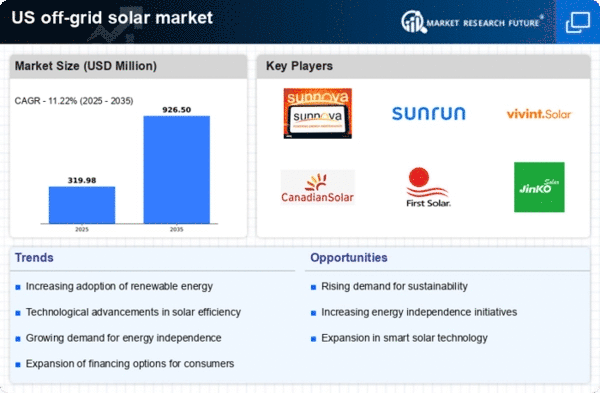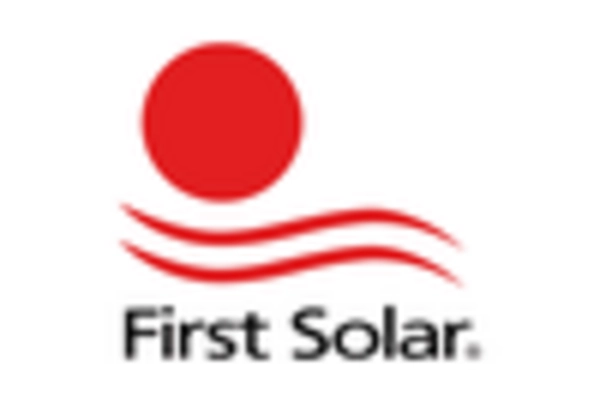Regulatory Support
The off grid-solar market is bolstered by favorable regulatory frameworks and policies at both state and federal levels. Incentives such as tax credits, rebates, and grants are designed to encourage the adoption of renewable energy technologies. For example, the Federal Investment Tax Credit (ITC) allows homeowners to deduct a significant portion of their solar installation costs from their federal taxes. Additionally, many states have implemented Renewable Portfolio Standards (RPS) that mandate a certain percentage of energy to come from renewable sources. These supportive policies not only lower the financial barriers to entry for consumers but also create a more favorable environment for the off grid-solar market to thrive. As regulations continue to evolve, the market is likely to see sustained growth driven by these incentives.
Rising Energy Costs
The off grid-solar market is experiencing a surge in demand due to the escalating costs of traditional energy sources. As utility rates continue to rise, consumers are increasingly seeking alternative energy solutions. In the US, electricity prices have risen by approximately 15% over the past five years, prompting homeowners and businesses to consider off grid-solar systems as a viable option. This trend is particularly pronounced in rural areas where access to the grid is limited or non-existent. The potential for long-term savings on energy bills further incentivizes investment in solar technology. Consequently, the off grid-solar market is likely to expand as more individuals and organizations recognize the financial benefits of harnessing solar energy, thereby reducing their reliance on conventional energy sources.
Environmental Awareness
Growing environmental consciousness among consumers is a key driver of the off grid-solar market. As awareness of climate change and environmental degradation increases, more individuals and businesses are seeking sustainable energy solutions. The off grid-solar market aligns with these values, offering a clean and renewable energy source that reduces carbon footprints. According to recent surveys, approximately 70% of Americans express concern about climate change, leading to a shift in energy consumption patterns. This heightened awareness is likely to propel the adoption of off grid-solar systems, as consumers prioritize eco-friendly options. Furthermore, the off grid-solar market benefits from the increasing demand for sustainable practices across various sectors, including agriculture and tourism, further solidifying its growth potential.
Technological Advancements
Innovations in solar technology are significantly influencing the off grid-solar market. Recent advancements in photovoltaic (PV) cell efficiency and energy storage solutions have made solar systems more accessible and effective. For instance, the efficiency of solar panels has improved to over 22%, allowing for greater energy capture in smaller spaces. Additionally, the development of compact and efficient battery storage systems enables users to store excess energy for use during non-sunny periods. These technological improvements not only enhance the performance of off grid-solar systems but also reduce installation costs, making them more appealing to consumers. As technology continues to evolve, the off grid-solar market is expected to grow, driven by the increasing availability of advanced solar solutions.
Decentralized Energy Solutions
The shift towards decentralized energy solutions is a notable trend impacting the off grid-solar market. As energy consumers seek greater control over their energy sources, off grid-solar systems provide an attractive alternative to traditional centralized power grids. This trend is particularly relevant in remote areas where grid access is limited or unreliable. The off grid-solar market offers a solution that empowers users to generate their own electricity, enhancing energy independence. Furthermore, the increasing interest in microgrids and community solar projects reflects a broader movement towards localized energy generation. This decentralization not only promotes resilience against power outages but also aligns with the growing desire for self-sufficiency among consumers. As this trend continues, the off grid-solar market is poised for significant expansion.
















